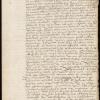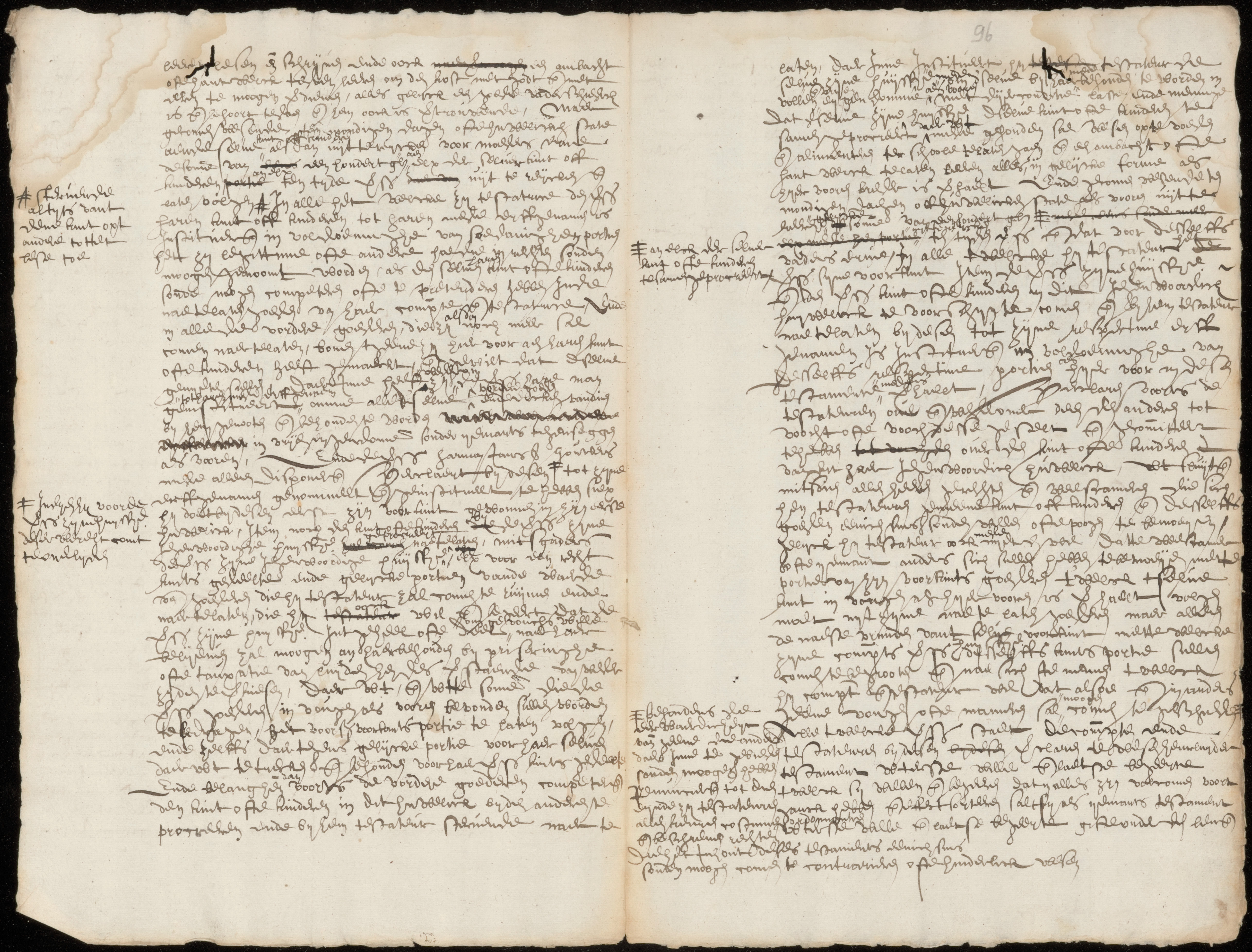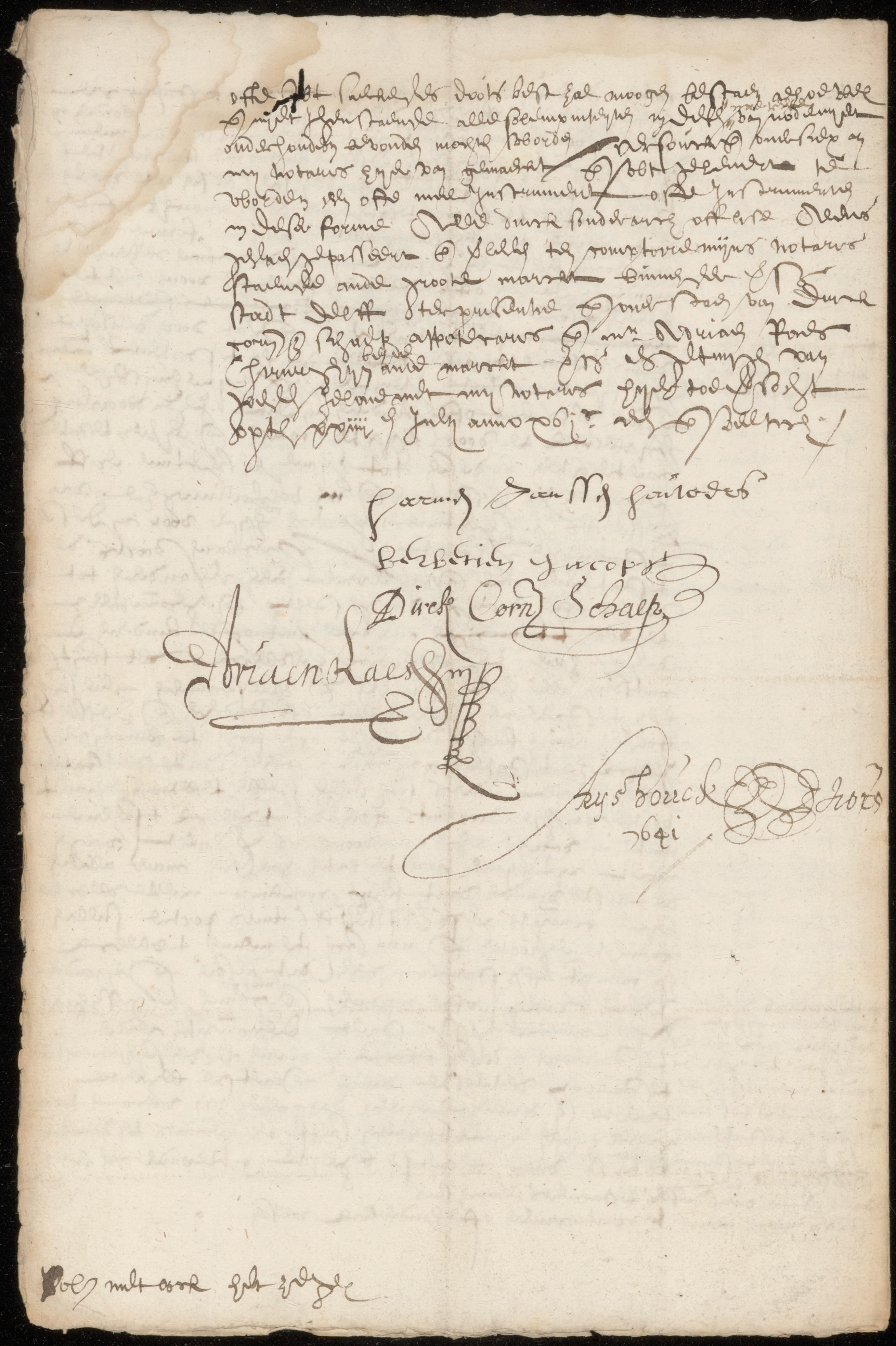
1641- Will

This concerns Harman Jansz Houwaert and his 2nd wife Barbara Jacobsdr van der Burcht who, I think, wrote a will together shortly after they married.
Does it mention 2 children of Harman's from his first wife?
As the will is quite long were there a lot of assets to share? Or issues to sort out?
I'm grateful, as always for any help that can be given.
best wishes
Anne
Reacties (6)
Dear Anne,
I had a look at it. Although it is an extensive will, it is quite a regular one. In this will his 'voorkind' is mentioned: this term was used for children born from a previous marriage. As the term is used in its single form, we can deduct there was only one child from his previous marriage alive at the moment he composed this will. Unfortunatel, there are no further details mentioned (no name or age) about this 'voorkind'.
Harman Jansz Houwers is mentioned in this will as a grocer (kruidenier), living at the corner of the Coerstraat [= current Choorstraat] behind the Old Church.
Both Harman and his wife Barbertgen Jacobsdochter have their own individual statement in this will.
Barbertgen stated that, in case she would die first and childless, the entire inheritance would befall to her husband.
In case a child or children would be born from this marriage, she wants her husband to properly raise, feed, and clothe the children, as well to provide them with any necessary goods, to have them go to school to learn to read and write and to be taught a trade or manual labour, enabling them to earn a living "with God an with honour".
Barbertgen also states that, in case she would die first, her widower Harman will be held to pay each of their children a sum of 100 guilders at the moment they would come of age (25 years) or at their moment of marriage. If any of their children would have died already before, the part of the deceased child will befall to the remaining child(ren).
Harman appointed as his inheritants the child from his previous marriage, his current wife, as well as any children that would eventually be born during this 2nd marriage.
In case he would die first, he also expects his wife to raise and feed their children and have them schooled in order to learn a trade of manual labour. His widow will be entitled as inheritant to a childs' part of his inheritance.
The other formulas in this document are quite standard and offer no additional essential info.
Much appreciated, thank you Rene for extracting the important information from this will.
I knew Harman was a grocer- but much later in 1655 so it's interesting to note he was obviously in this occupation much earlier than I thought.
The fact both parents wanted an education and trade for their children was a regular feature of wills at that time wasn't it? I assume this applied to boys and girls?
warmest wishes
Anne
Hi Anne,
Yes, the formula about taking care of the children was a standard formula, to be found in most of the mutual wills. This indeed applied to both boys and girls; the standard formula stated the surviving parent was expected to have the children educated and schooled in order to learn a craft ('ambacht', primarily concerning bos) or handicrafts ('handwerk', primarily concerning girls) with which these children could earn their own and decent living.
Good to know Rene. Thanks for confirming the above :-)


Anne
zei op donderdag 20 maart 2025 - 18:25